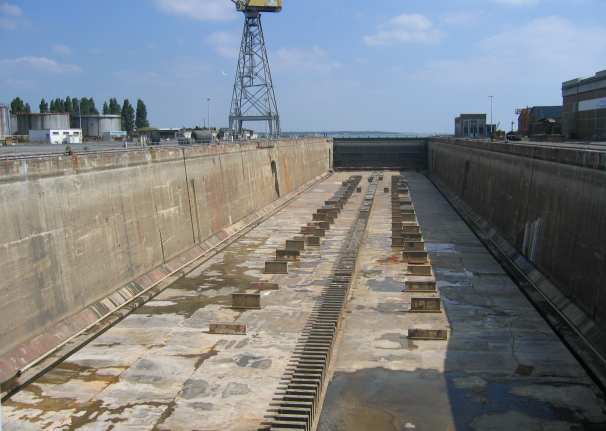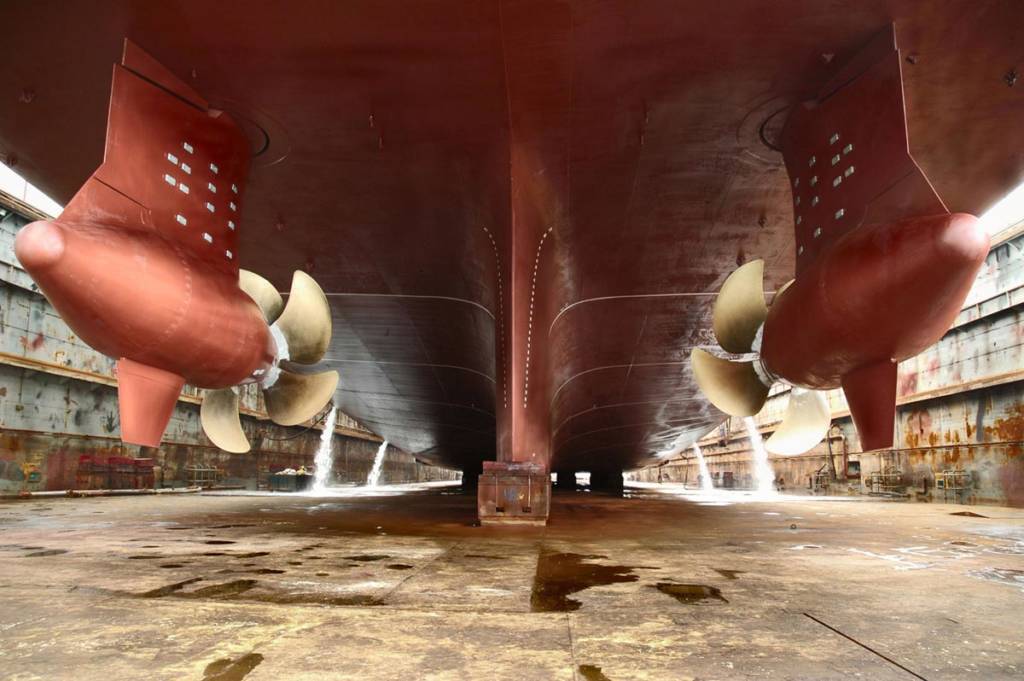WHAT IS DRY DOCK? NECESSITY OF DRY DOCKING

WHAT IS DRY DOCK? NECESSITY OF DRY DOCKING
– BY A.K.RAMANUJAN
Reasons for dry-docking?
Dry dock dry docking necessity.
The dry docking activity of cargo ships on a regular basis is a requirement for efficient and safe operation of ships and has two main objectives which are as follows :-
- To clean, scrub, prepare by de -scaling all rusted areas of the hull, and finally paint the ship’s hull so that speed and fuel consumption are restored to the original
- To examine all underwater critical components as well as the entire under water hull for defects and take suitable corrective.
Regulations on Dry docking
The question that is frequently asked is whether it is mandatory to dry dock a ship on a regular basis. The answer is yes and it is in accordance with cargo ship safety construction rules based on the 1974 SOLAS regulations. The rules state that cargo ships have to be dry docked twice in an interval of five years with the interval between consecutive dry dockings being not less than two years and not more than three years. The classification societies have interpreted this rule by providing a regular interval of thirty months with a window period of + or – six months from the anniversary date so as to suit this requirement.
HISTORY OF DRY DOCKING
About sixty years back all cargo ships were being dry docked on an annual basis and this was being done in accordance with classification rules existing then.
With advances made in technology, steel quality and paint materials have improved considerably making them more reliable. In addition to this it the pattern of world wide shipping has changed whereby ships are at sea for longer periods in a year as compared to conditions sixty years before. The Administrations and classification societies have therefore amended the rules accordingly.
In addition to the above change. The classification society’s rules for periodical surveys have now been amended to operate in accordance with the harmonization of surveys so that surveys and repairs are carried out conveniently without hindrance to the operation of the ships.
DRY DOCK SURVEY
Accordingly in a five year cycle of survey the two dry dockings are programmed as, the first dry-docking during the intermediate survey layup and the second dry-docking during the special survey layup for renewal of class certificate.
The above stated facts apply to regular and routine dry docking. As per classification rules as well as rules for issue of safety construction certificate, the routine dry-docking cannot be substituted by an afloat underwater inspection . Such inspections are recommended in special circumstances especially when the ship has missed the scheduled dry docking for various genuine reasons and this inspection by the classification society is carried out only after obtaining a suitable recommendation from the Administration. This recommendation is limited to issue a voyage permission for the ship to reach the shipyard stemmed.
OTHER REASONS FOR DRY DOCKING
Dry docking has to be carried out after an accidental grounding or collision involving underwater damage .This dry docking will only involve the requirements for satisfactory completion of the repairs for the under water damage. If , however this accident has occurred within close proximity of the scheduled dry docking date , the dry docking activity (regular) may be suitably advanced which the administration will agree.
It should be understood that during dry docking the normal repairs for hull and machinery as scheduled and listed out will continue but they are not considered as work relating to the dry docking activity. This is being stated here especially so that students answering specific questions on drydocking do not list out jobs or work which do not require drydocking.



